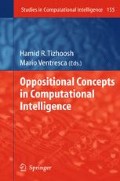Summary
Water resource management is one of the important issues for most governmental and private agencies around the globe. many mathematical and heuristic optimization or simulation techniques have been developed and applied to capture the complexities of the problem; however, most of them suffered from the curse of dimensionality. Q-learning as a popular and simulation-based method in Reinforcement Learning (RL) might be an efficient way to cope well practical water resources problems because of being model-free and adaptive in a dynamic system. However, it might have trouble for large scale applications. In this chapter, we are going to introduce a new type-II opposition of Q-Learning technique in a single and multiple-reservoir problem. The experimental results at the end of chapter will confirm the contribution of the opposition scheme in speeding up the learning process especially at the early stage of learning and making it more robust at the end. These results are promising for large-scale water resources applications in the future.
Access this chapter
Tax calculation will be finalised at checkout
Purchases are for personal use only
Preview
Unable to display preview. Download preview PDF.
References
Bellman, R.: Dynamic Programming, 1st edn. Princeton University Press, Princeton (1957)
Doran, D.G.: An efficient transition definition for discrete state reservoir analysis: the divided interval technique. Water Resou. Res. 11(6), 867–873 (1975)
Fletcher, S.G.: A new formulation for the stochastic control of systems with bounded state variables: an application to reservoir systems. PhD thesis, Dept. of Systems Design Engineering, University of Waterloo, Canada (1995)
Ponnambalam, K., Adams, B.J.: Stochastic optimization of multireservoir systems using a heuristic algorithm: case study from India. Water Resou. Res. 32(3), 733–742 (1996)
Klemes, V.: Discrete representation of storage for stochastic reservoir optimization. Water Resou. Res. 13(1), 149–158 (1977a)
Klemes, V.: Comment on An efficient transition definition for discrete state reservoir analysis: the divided interval technique by D.G. Doran. Water Resou. Res. 13(2), 481–482 (1977b)
Labadie, J.W.: Optimal operation of multireservoir systems: State-of-the-art review. J. Water Resou. Plan. and Manage. 130(2), 93–111 (2004)
Loucks, D.P., Stedinger, J.R., Haith, A.D.: Water resource systems planning and analysis. Prentice-Hall, New Jersey (1981)
Mahootchi, M., Tizhoosh, H.R., Ponnambalam, K.: Reservoir operation optimization by reinforcement learning. In: Proceedings of international conference on storm water and urban water systems, pp. 165–184 (2006); James, Irvine, McBean, Pitt, Wright (eds.) Monograph 15, Ch. 8 in Contemporary Modeling of Urban Water Systems
Mahootchi, M., Tizhoosh, H.R., Ponnambalam, K.: Opposition-based reinforcement learning in the management of water resources. In: Proceedings of IEEE Symposium Series on Computational Intelligence, Hawaii, U.S.A., pp. 217–224 (2007)
Mays, L.W., Tung, Y.K.: Hydrosystems engineering and management. McGraw-Hill, U.S.A. (1992)
Ponnambalam, K.: Optimization of the Integrated Operation of Multi-Reservoir Irrigation Systems. PhD thesis, Dept. of Civil Engineering, University of Toronto (1987)
Robbins, H., Monro, S.: A stochastic approximation method. Annals of Mathematical Statistics 22(3), 400–407 (1951)
Tizhoosh, H.R.: Opposition-based learning: a new scheme for machine intelligence. In: Proceedings of the International Conference on Computational Intelligence for Modeling Control and Automation, CIMCA, Vienna, Austria, vol. I, pp. 695–701 (2005)
Tizhoosh, H.R.: Opposition-based reinforcement learning. Journal of Advanced Computational Intelligence and Intelligent Informatics (JACIII) 10(4), 578–585 (2006)
Wang, D., Adams, B.J.: Optimization of real-time reservoir operations with markov decision processes. Water Resou. Res. 22(3), 345–352 (1986)
Author information
Authors and Affiliations
Editor information
Rights and permissions
Copyright information
© 2008 Springer-Verlag Berlin Heidelberg
About this chapter
Cite this chapter
Mahootchi, M., Tizhoosh, H.R., Ponnambalam, K. (2008). Opposition Mining in Reservoir Management. In: Tizhoosh, H.R., Ventresca, M. (eds) Oppositional Concepts in Computational Intelligence. Studies in Computational Intelligence, vol 155. Springer, Berlin, Heidelberg. https://doi.org/10.1007/978-3-540-70829-2_14
Download citation
DOI: https://doi.org/10.1007/978-3-540-70829-2_14
Publisher Name: Springer, Berlin, Heidelberg
Print ISBN: 978-3-540-70826-1
Online ISBN: 978-3-540-70829-2
eBook Packages: EngineeringEngineering (R0)

